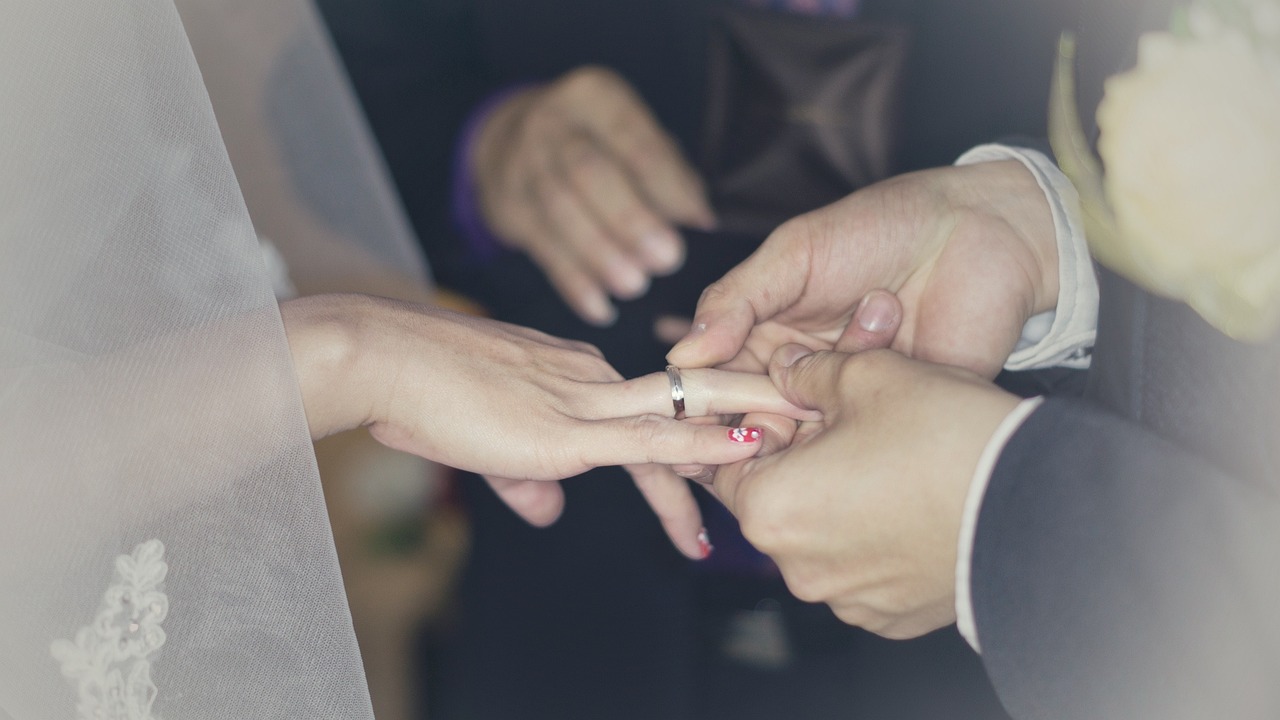
So you just got engaged – Congratulations! There are few experiences in life more exciting than embarking on a marriage journey with the person you love, and few experiences more stressful than planning a wedding. The flowers, the food, the decorations . . . It can get overwhelming fast. The good thing is you don’t have to plan everything all at once. So take a deep breath, make a cup of tea, and just start with the basics.
Identify Your Priorities

When you think of your upcoming wedding, what are the things that are most important to you? Are there some things you just can’t see yourself getting married without? Is there a specific venue you absolutely must get married at, or a specific date that is significant to you? Do you have friends or family out of state, or even out of the country, that you want to be sure can attend? Asking yourself questions like these can help you identify the core elements of your wedding that everything else will hinge upon. Next, decide which elements of your wedding can have no expenses spared, and which can afford to be your second or third choice. There is no rule that says you can’t have both your favorite caterer and the best photographer, but it’s good to have those priorities in place should you have to decide between them because of scheduling conflicts, budget, or some other constraint. Once you decide on your priorities, you can then tackle your budget and the rest of the planning process with confidence.
Establish a Budget

Money can be an awkward topic for many people, but when it comes to planning a large event like a wedding, setting a budget can be one of the most important conversations. Whether you and your partner are paying for the wedding yourself or you have friends and family pitching in, it is crucial to sit down and discuss where your money is coming from and where it’s going. A good budget not only tells you how much money you have to spend in total (thereby helping you avoid overspending), but also tells you what you’re willing to spend on each element of the wedding, taking into account the items you chose to prioritize. Knowing your budget will also help you get an idea of big, small, simple, or extravagant your wedding is able to be. This, in turn, will set a standard for the types of venues and vendors you want to look for.
Do Your Research

Once you have your budget in place, you can then begin to research the venues and vendors in your area. The vendor team for most weddings will include a caterer, bartender, baker, florist, photographer, DJ or band, hair and makeup artists, event rental, and wedding planner. This, of course, is not an exhaustive list, and you can definitely choose to go with or without any of these to fit the vision for your wedding. Look for vendors that fit your budget and style, and make sure to check their availability if you already have a date in place. Also, keep in mind that some vendors, venues especially, have a list of preferred vendors that they work with. This may be a dealbreaker for you if you have a specific vision in mind, but it could also be a great jumping-off point as it gives you an idea of what vendors are proven to work seamlessly together. You don’t, by any means, have to book everything all at once, but it’s a good idea to get a feel for what is available in your area. Your research may even help you start to form a vision for what you want your wedding to look like.
Discover Your Vision

One of the most exciting parts of planning a wedding is deciding what it’s going to look like. Do you envision fun and colorful decor with wildflowers and thrifted teacups? Or perhaps you prefer a classic black and white wedding with roses and silver accents? It’s never too early to start looking for inspiration and compiling the images, videos, and examples that you love. Think about what colors, textures, and themes you want to feature. Start a list of any activities and traditions you want to include. Allow yourself to enjoy the creative process; narrowing down the specifics can come later. Having an idea of what you want your wedding to look like will help in the coming months when you start hiring vendors and placing your rentals.
Draft Your Guest List

The final thing you need to start in the early stages of wedding planning is your guest list. The list can change as you get closer to the wedding date, but it’s a good idea to go ahead and start a draft. Making a guest list will give you an idea of your intended headcount, which is important to know when booking your vendors. Having a guest list is also important for the purposes of sending out engagement announcements, save-the-dates, and invitations. Now is also a good time to think about who you want included in your wedding party. Having the right team by your side for not only the wedding itself, but also the planning process, can make a big difference.
Remember: You’re not alone

Planning any large event can be overwhelming, and a wedding is certainly no exception. It’s easy to get caught up in the planning stress and forget that help is available to you. Realize that most large events are put together by planning committees. Don’t be afraid to assemble your own committee, whether it consists of friends and family members or a formal wedding planner to aid you in this process. Above all, remember to have fun. You’re getting married!




